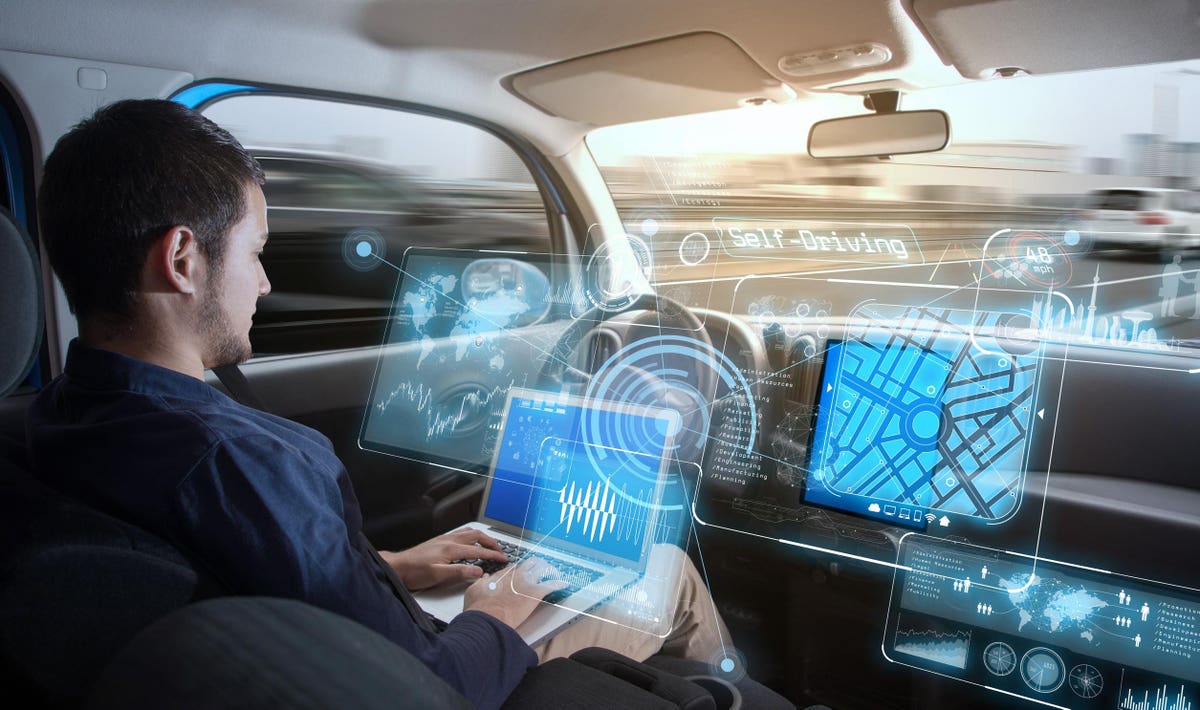
AI plays a crucial role in self-driving cars.
Artificial Intelligence (AI) is increasingly being integrated into various aspects of car technology, enhancing safety, convenience, and overall driving experience. Here are some key uses of AI in cars:
Autonomous Driving: AI plays a crucial role in enabling autonomous or self-driving cars. AI algorithms process sensor data from cameras, radar, lidar, and other sources to perceive and understand the surrounding environment. These algorithms help the vehicle make real-time decisions and actions, such as lane changing, braking, accelerating, and navigating complex traffic situations.
Advanced Driver Assistance Systems (ADAS): ADAS technologies use AI to enhance driver safety and assist in various driving tasks. AI algorithms analyze sensor data and provide features such as adaptive cruise control, lane-keeping assist, collision detection and avoidance, blind-spot monitoring, and automatic emergency braking. These systems help prevent accidents, reduce driver fatigue, and improve overall road safety.
Natural Language Processing (NLP) and Voice Recognition: AI-powered NLP and voice recognition systems enable drivers to interact with their cars through voice commands. Drivers can use voice-controlled interfaces for tasks like making phone calls, sending messages, adjusting climate control, playing music, or getting navigation directions, allowing for hands-free and safer operation.
Intelligent Navigation Systems: AI algorithms enable intelligent navigation systems that provide real-time, dynamic routing based on traffic conditions, road closures, and other factors. These systems can optimize routes, estimate arrival times, and provide alternative routes to help drivers reach their destinations more efficiently.
Predictive Maintenance: AI can be used to analyze sensor data and identify potential maintenance issues in a vehicle. By monitoring various parameters, such as engine performance, tire wear, battery health, and other components, AI algorithms can predict and alert drivers or service centers about maintenance needs, helping prevent breakdowns and optimize vehicle maintenance.
Personalized User Experience: AI can personalize the in-car experience by learning driver preferences, habits, and behaviors. This includes adjusting seat positions, climate control settings, infotainment options, and suggesting personalized content or recommendations based on past usage patterns.
Enhanced Infotainment Systems: AI can power advanced infotainment systems that offer intelligent voice control, natural language understanding, and personalized content recommendations. These systems can integrate with smartphones, media players, and other devices to provide seamless connectivity and entertainment options.
Cybersecurity: AI is utilized in car cybersecurity to detect and prevent potential cyber threats and attacks. AI algorithms analyze network traffic, detect anomalies, and identify patterns indicative of malicious activities, helping protect connected cars from cyber vulnerabilities.
These are just a few examples of how AI is being used in cars. As technology advances, AI is expected to play an even larger role in shaping the future of automotive innovation, making vehicles safer, more efficient, and more user-friendly.